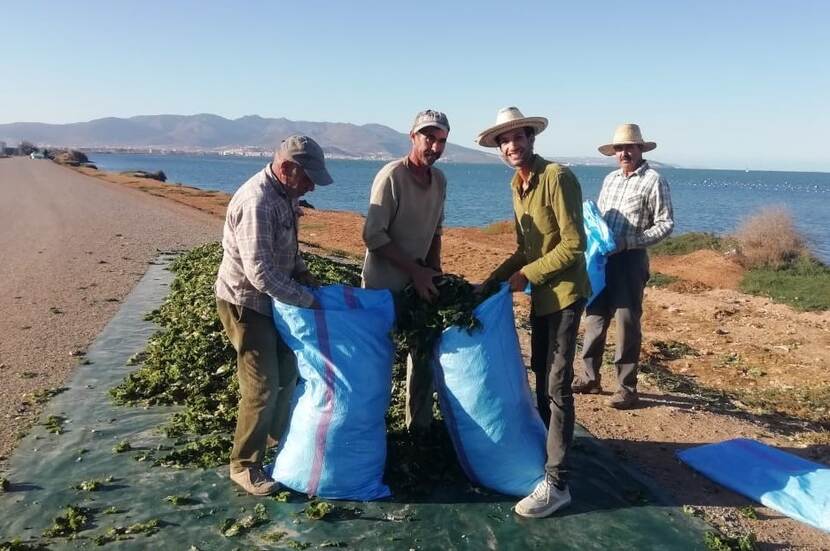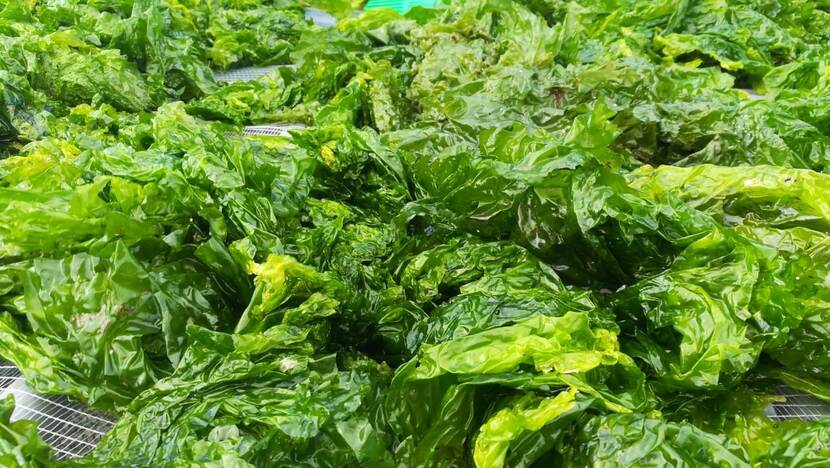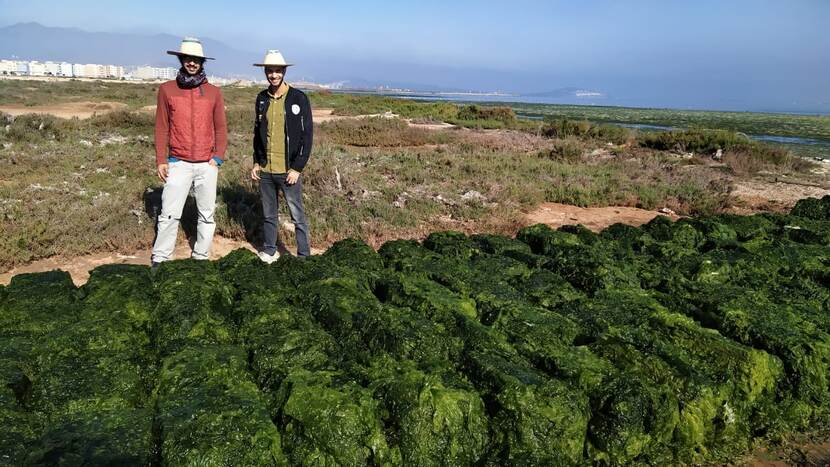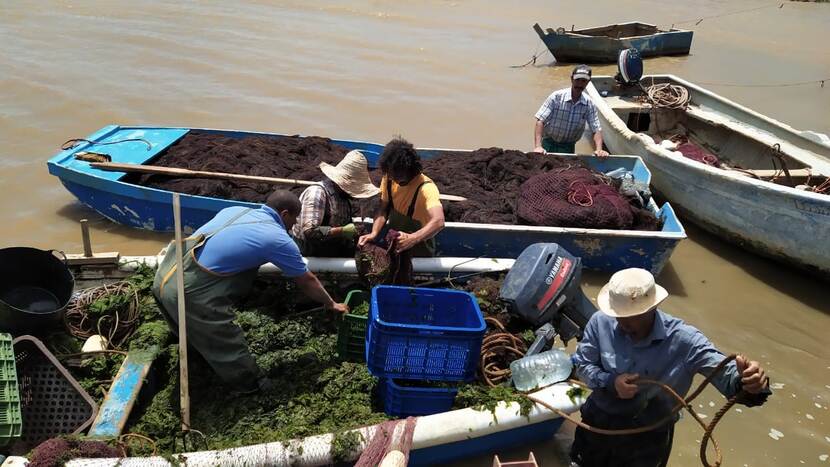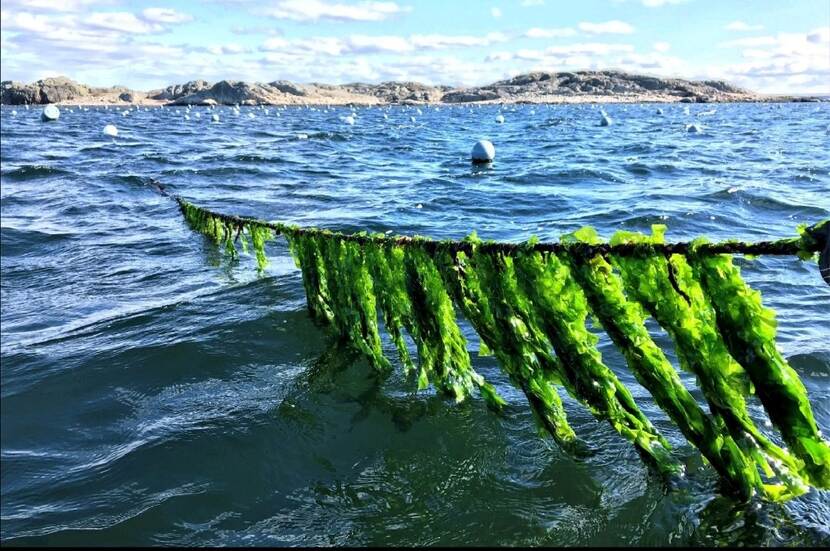Africa Business Week: Pioneering with seaweed in Morocco
Seaweed has benefits for people, animals and oceans, yet seaweed farming is hardly known outside Asia. This is something that Joost Wouters of The Seaweed Company is changing. With support from the Dutch Ministry of Foreign Affairs, he conducted a feasibility study that looked at building a seaweed plantation in Morocco. He spoke about the project during Africa Business Week.
Seaweed is not only good for people’s health and immune systems, it can also be used to add protein to animal feed and fertilise farmland. Just a touch of seaweed helps plants grow faster – without artificial fertilisers or pesticides. Growing seaweed boosts biodiversity in the open sea, by creating a habitat for all kinds of animals. On top of all that, seaweed absorbs carbon dioxide, and all you need to produce it is sunlight and seawater.
In love with seaweed
The three founders of The Seaweed Company all have one thing in common: they love seaweed. Biologist Stefan Kraan has long been known as the ‘seaweed guru’. Edwin Sneekes and Joost Wouters both worked for companies in mainstream sectors until three years ago. ‘I got to a point where I wanted to use my experience in a more sustainable way, so that future generations could also enjoy our planet,’ Joost says. Instead of working to transform existing industries, Joost set out to organise things in new ways.
Gardens among the wind turbines
In Asia, seaweed has been farmed for centuries. It’s not just on the menu; it’s also used as a binding agent in products ranging from toothpaste to chocolate milk. Joost began looking at how to produce seaweed outside Asia. ‘In Dutch waters, the sea floor is mainly sand, so very little seaweed grows on it. Offshore wind farms, on the other hand, are ideal: between the masts, the seaweed flourishes in veritable “gardens”.’ On the rocky Irish coast, hundreds of different kinds of seaweed grow. In cooler waters, you find brown seaweed, while red and green varieties thrive in the warmer waters around the equator. ‘We want to produce all colours of seaweed so we can make use of all its various properties.’
Seaweed plantation in Morocco
The Seaweed Company considered expanding into Morocco. The country is relatively close to the Netherlands and the seawater is warmer there. ‘It is, after all, the gateway to Africa, and that’s very exciting,’ says Joost, who initially had no contacts in the country. The three entrepreneurs were able to conduct a feasibility study with a grant from the Netherlands Enterprise Agency (RVO). The grant, funded by the Ministry of Foreign Affairs, enabled them to study the market, logistics flows, operations, local contacts and functioning of the import and export market. ‘This resulted in a business plan that enabled us to take the plunge and start a seaweed plantation in Morocco. Working with the local population is very important to us. That’s why there are two Moroccan entrepreneurs in the management team. A local cooperative harvests the seaweed; we’re providing work to 15 fishermen and women who would otherwise be unemployed.’
Tax on weeds
As the seaweed production was getting off the ground, Joost was in contact with the Dutch mission and the Agricultural Counsellor in Morocco. ‘The Dutch government’s network is everywhere, and very accessible. That was a big help, because we ran into obstacles during implementation. For example, government ministries in Morocco didn’t know how to tax seaweed – a product that until then they had considered a weed. Everything goes slower than we’d like: at every step, we had to submit documents in septuplicate.’ But the bureaucratic hurdles didn’t dampen Joost’s enthusiasm. ‘Pioneering gives you so much energy. And once you ship that first container of seaweed, everything falls into place.’ This first adventure in Africa has whetted their appetite for more. The Seaweed Company is now looking into expanding into Zanzibar and Tunisia.
